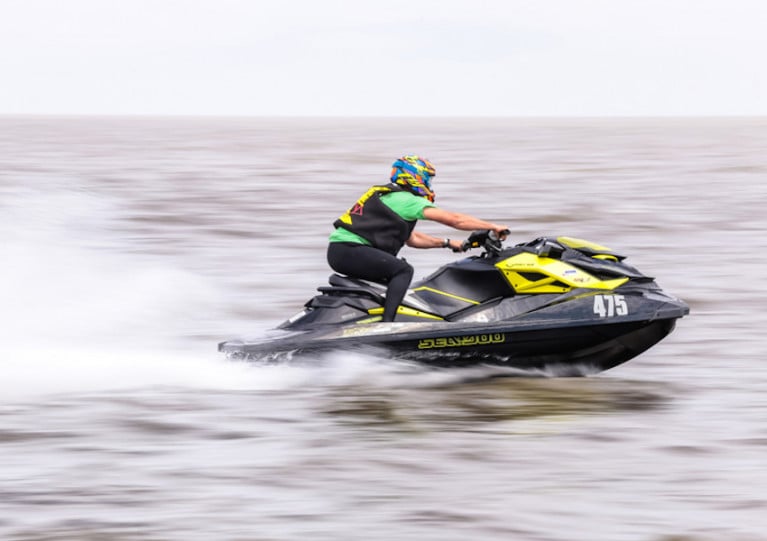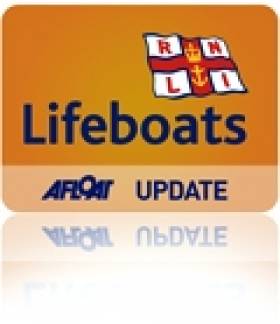Displaying items by tag: PWC
Use Your Jet Ski Safely At The Coast This Summer
The UK’s coastguard is warning people of the dangers of jet skis, personal watercraft (PWC) and motorised recreational craft after a spate of incidents in recent weeks around the south west coast of England.
Many were breakdowns, but these incidents also included jet skis and motor boats overturning in the water, getting too close to other vessels, collisions and conflict between users of these craft and other sea users, such as swimmers.
Sadly, two incidents resulted in fatalities.
Richy Williams, senior coastal operations officer for the area with HM Coastguard, said: “The majority of PWC and motorcraft users operate their vessels responsibly but there are some who don’t respect the water, the capabilities of their vessels and other water users.
“We want people to enjoy themselves at the coast, but also to make sure they’re staying safe.
“Jet skis, PWCs and motor vessels can be powerful machines, so always operate your vessel within the limits of your, and your vessel’s, capabilities. Be aware of the presence of other water users and ensure that you are aware of the impact your activities have on others.
“Ensure you have a means of alerting the coastguard if you get into difficulties such as a VHF, handheld VHF or mobile phone in a dry bag.
“A personal locator beacon (PLB) may be useful for more remote locations, along with flares and, where possible, always wear a kill cord which will cut your vessels engine should you move away from its controls or become detached from your vessel.
“Know the bylaws that are in place in the location you are operating your vessel, stick to them and be respectful of other water users. If you see anyone putting others at risk or in difficulty at the coast, call 999 [or 112 in Ireland] and ask for the coastguard.”
Jet Ski Driver - Are You in Control?
Jetski – The UK Coastguard and North Wales Police are reminding people of the dangers of jet skis and personal watercraft (PWC) ahead of what is hoped will be a busy summer in North Wales.
Last summer Holyhead Coastguard dealt with almost 35 incidents involving PWCs. These ranged from mechanical issues, running out of fuel or even concern that PWCs were too close to shore or endangering swimmers.
In one incident a man and a woman suffered serious injuries after two jet skis collided near Porthmadog and over the same weekend a youngster in Abersoch sustained minor injuries after the kayak he was in was struck by a jet ski.
Ray Carson, Rescue Coordination Centre Manager at Holyhead Coastguard, said:
"The majority of PWC users are responsible and often assist us during search and rescue incidents. However, during the summer months we do receive complaints that jet skis and PWCs have gone too fast and too close to shore. This is concerning to us as it's putting swimmers and other beach-goers in danger. You should check if any bylaws are in place, stick to them and be respectful of others in the water.
"You also need to make sure you know how to operate these powerful machines. The last thing you want is to find yourself in the water after being thrown off. This is why we always recommend that you get yourself trained, wear a buoyancy aid and ensure you're using a kill cord, so if you end up in the water, the engine will stop. Remember, if you see anyone in difficulty at the coast, call 999 and ask for the Coastguard."
Dewi Jones, the newly appointed Police Inspector for South Gwynedd, added:
"Incidents involving inappropriate, unsupervised or careless use of sometimes powerful marine craft impact upon all the emergency services when our resources may be required elsewhere. Last summer at least three people sustained significant injuries. Two of those could have been a lot worse. Working with HM Coastguard, RNLI and other emergency services we'd ask that all marine craft users to adhere to safety advice, act responsibly and consider others in the water so everyone can enjoy the pleasures of our beautiful beaches and seas."
First Outing for Skerries RNLI's New Lifeboat
#RNLI - Skerries RNLI recorded its first service by its new inshore lifeboat on Sunday afternoon (21 April). SEE VIDEO BELOW
The North Co Dublin lifeboat station's volunteer crew was requested to launch following a report that a vessel was adrift off Bettystown beach.
Crew members, alerted by their pagers, launched their new Atlantic 85 lifeboat Louis Simson within 10 minutes.
It was quickly established that the owner of the vessel was on shore. With the potential for the personal water craft (PWC) to pose a danger, the decision was made to locate it and return it to the beach.
Once on scene, a volunteer crew member was put on board the PWC and brought the vessel safely to shore.
Speaking following the callout, Skerries RNLI volunteer crew member Emma Wilson said: "The visibility was good today, but it was something quite small we were looking for, so being able to have an extra crew member on board our new lifeboat really made a difference during the search."


























































